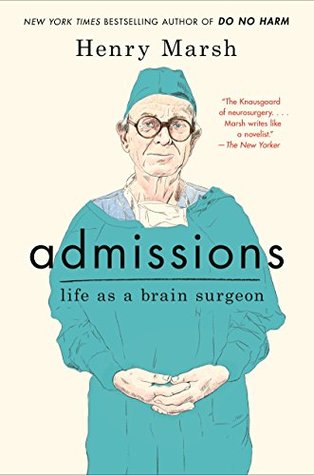More on this book
Community
Kindle Notes & Highlights
by
Henry Marsh
Read between
May 18 - August 13, 2018
There is a beautiful ink and sepia drawing by the mystical early-nineteenth-century artist Samuel Palmer in the Ashmolean Museum in Oxford
You learn them by doing, much more than by knowing. It becomes what psychologists call implicit memory. When we learn a new skill the brain has to work hard – it is a consciously directed process requiring frequent repetition and the expenditure of energy. But once it is learnt, the skill – the motor and sensory coordination of muscles by the brain – becomes unconscious, fast and efficient.
The famous sea squirt, beloved of popular neuroscience lectures, in its larval stage is motile and has a primitive nervous system (called a notochord) so it can navigate the sea – at least, its own very small corner of it. In its adult stage it fastens limpet-like to a rock and feeds passively, simply depending on the influx of seawater through its tubes. It then reabsorbs its nervous system – it is no longer needed since the creature no longer needs to move.
wish I were a sea squirt, If life became a strain, I’d veg out on the nearest rock And reabsorb my brain.
Our fear of death is deeply ingrained. It has been said that our knowledge of our mortality is what distinguishes us from other animals, and is the motive force behind almost all human action and achievement.
For those who believe in an afterlife, must we suffer as we lie dying, if we are to earn our place in heaven? Must the soul undergo a painful birth if it is to survive the body’s death, and then ascend to heaven? Is it yet more magic and bargaining – if we suffer now, we will not suffer in the future? We will not go to hell or linger as unhappy ghosts? Is it cheating, to have a quick and easy death? But I do not believe in an afterlife – my concern is simply to achieve a good death. When the time comes, I want to get it over with. I do not want it to be some prolonged and unpleasant
...more
He has been the subject of two major documentary films, Your Life in Their Hands, which won the Royal Television Society Gold Medal, and The English Surgeon, which won an Emmy,


